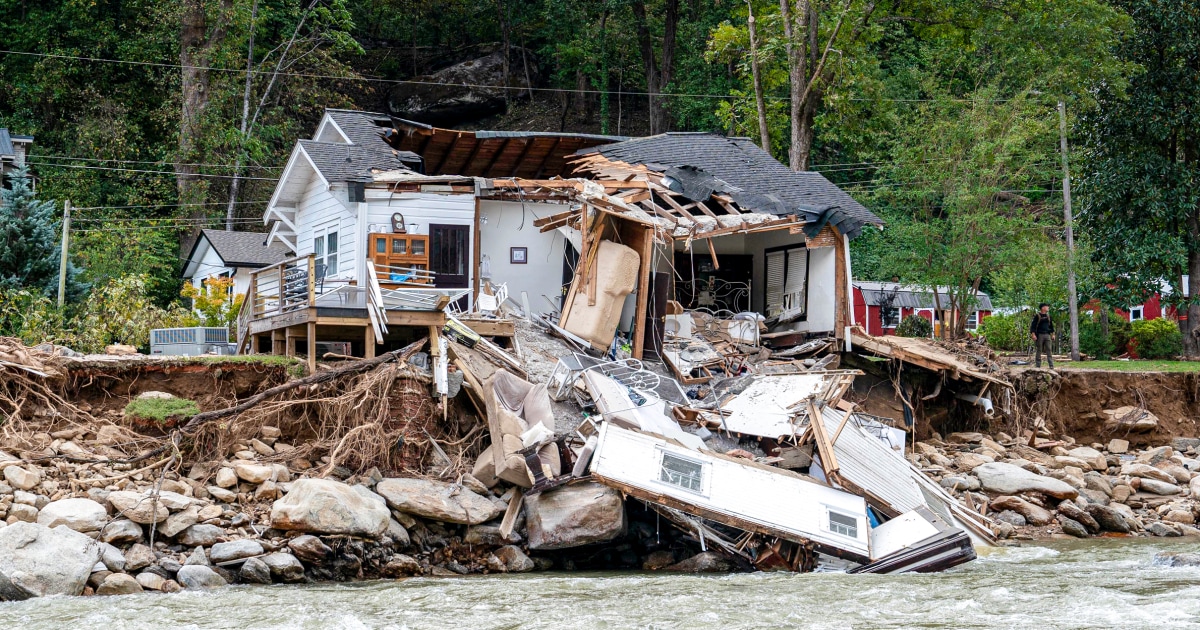In all, O’Leary said, 15 businesses were destroyed and 26 more were damaged. On the south side of town, 15 homes were obliterated and 14 more were damaged. Five bridges, including a footbridge, were razed. Three miles of Main Street, which is also known as U.S. Highway 64/74, were completely torn apart.
And all this damage was done on a town with just 140 permanent residents, a town so small it doesn’t have a stop light.
“The challenge to getting back to normal life is the stuff we take for granted,” O’Leary said. “Power, water, sewer, and transportation roadways. All of these were damaged to a large degree.”
An NBC News video crew visited Chimney Rock the week after it flooded and spent two days following O’Leary and Chimney Rock Village Administrator Stephen Duncan as they struggled to restore basic services, navigated both physical and bureaucratic hurdles, and met with still shell-shocked storm survivors.
“It was just like a wall of water,” recalled survivor Barbara Meliski, who heads the Village Planning Board.
Clutching her jaw, Meliski said the water began rising after Chimney Rock had already been doused by an epic rainstorm.
“I’m telling you it was almost like you could grab the raindrops,” she said. “They were so thick.”
Teresa Cauthern, owner of the Chimney Rock Inn, shared with reporters footage of the raging river water ripping the deck off her property that she recorded just before she fled.
“I left right after this when I took this video,” she said. “I grabbed some things and my cat and we got out of there.”
As of Wednesday, there were 96 “verified storm-related fatalities” in North Carolina as a result of Helene, according to the state’s official website.
Thus far in Chimney Rock, there has been only one confirmed death in the village — an older woman who refused to leave her home on the south side of town, officials said.
O’Leary said he was away on vacation when the storm struck and when he finally made it back to Chimney Rock he found himself suddenly homeless. He lived just across the street from his store.
So O’Leary bunked a few miles out of town at Duncan’s compound, where they set up a “mobile command center” in Duncan’s RV.
When the NBC News crew visited, Duncan was visibly frustrated with the Federal Emergency Management Agency’s response.
“FEMA has a website,” Duncan said. “Hell, that doesn’t do us any good. We can’t get online.”
Later, after a group call with an engineering firm, Duncan went further in his criticism of government bureaucracy.
“I’ll be straight with you,” he said. “The most perplexing thing that makes me angry is the federal emergency management is coming to help us, and to get their help you jump through so many hoops that are unnecessary.”

Leave a Reply